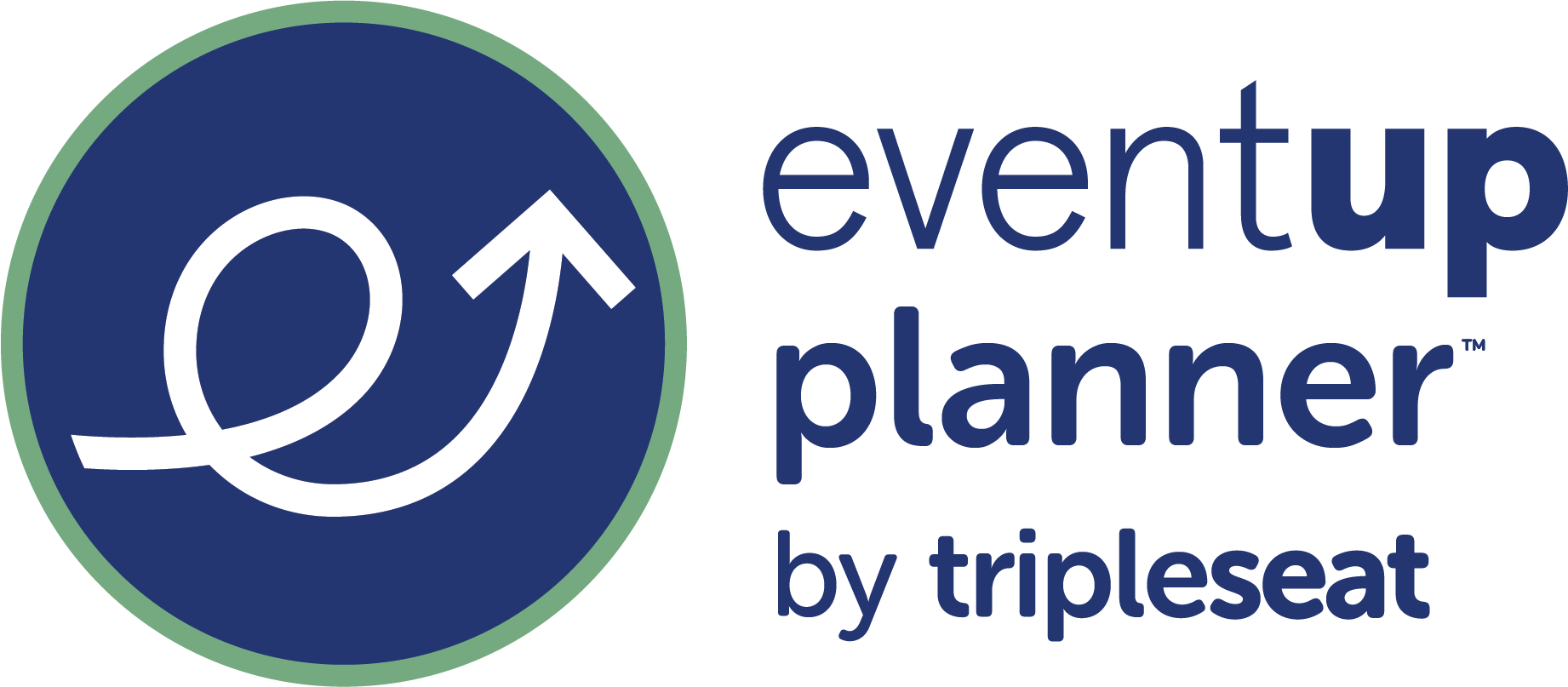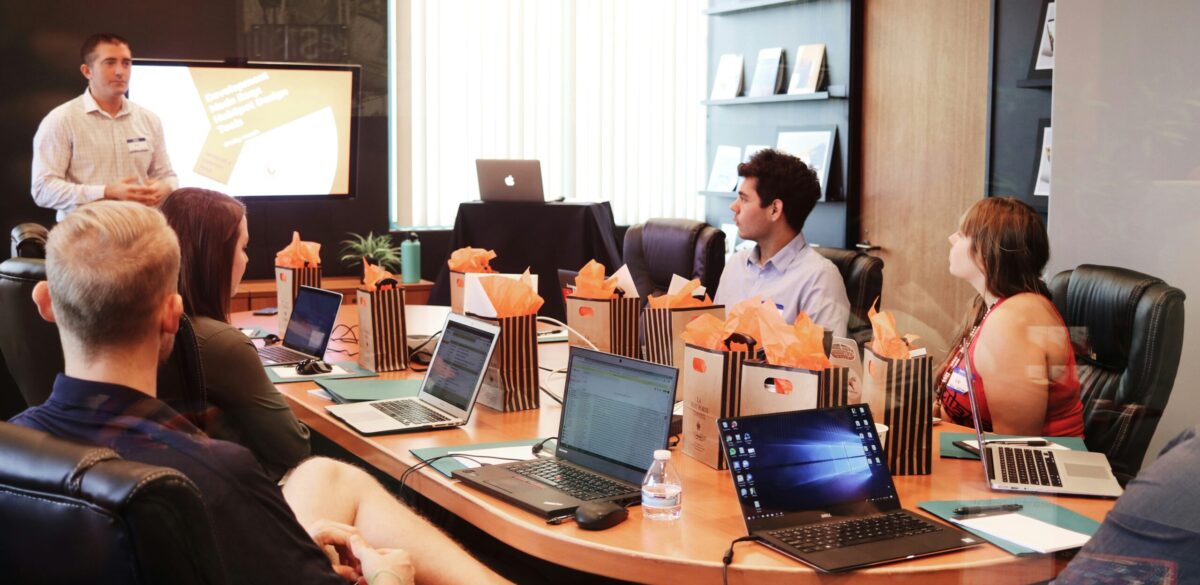Sales kick-off meetings (SKOs) are vital for driving success in your company’s sales team.
These events bring together your company’s entire sales team from across the country to celebrate wins, reinforce company values, and equip attendees with knowledge and tools for the upcoming sales cycle.
When done well, sales kick-off meetings foster unity, inspire confidence, and reignite the passion that fuels top performers.
When executed poorly, attendees leave feeling deflated and uninspired— definitely not what you want for your people!
So whether you’re a corporate event planner or a sales team leader, we’ll explore the crucial elements of planning a successful SKO. Keep reading for 13 creative event ideas to engage and inspire your sales force at your next sales kick-off meeting!
What is a Sales Kick-off Meeting?
A sales kick-off meeting (SKO) is an annual or semi-annual event where companies gather their entire sales organization. These meetings typically occur at the start of a new fiscal year or sales period and are held off-site, often at a hotel or conference center (though virtual options are rising in popularity).
The primary objectives of an SKO are to provide product and strategy updates, set goals, rev up motivation, and align the sales team for the upcoming sales cycle!
Despite the rise of remote work, successful companies like HubSpot, Salesforce, and Adobe continue to invest in SKOs. These events remain relevant as they foster team camaraderie, offer valuable training opportunities, and create a shared sense of purpose and direction for the sales force.
Common agenda items at a sales kick-off meeting include:
- Company updates and vision casting
- Product updates and demos
- Sales strategy and goal-setting
- Keynote speakers and motivational sessions
- Training and skill development workshops
- Team-building activities
- Awards and recognition ceremonies
What Does Every Sales Kick-off Event Need?
To create a truly impactful and memorable sales kick-off event, you need to incorporate several crucial pillars that cater to the diverse needs of your company’s sales force. Let’s explore these pillars in greater detail:
Reflection & celebration
A successful SKO should start by reflecting on the previous year’s achievements, challenges, and lessons learned. Whether individual or team-based, celebrating wins boosts morale and reinforces a positive sales culture! This recognition fosters a sense of accomplishment and motivation to continue striving for excellence.
Education
Providing comprehensive product and industry updates keeps your sales team informed and equipped to handle customer objections effectively. Educational sessions should cover new features, relevant competitors, and emerging market trends. Hands-on training and role-playing scenarios can level-up everyone’s skills.
Team engagement
You have great people on your sales team. Why not leverage them? The best sales kick-off events include collaboration, problem-solving, and relationship-building. Informal break-out sessions encourage the team to learn from each other and succeed together. Activities can range from team-based challenges to social events, fostering a sense of camaraderie and strengthening team bonds.
Collaboration
Aligning the sales team with other departments— such as marketing, product development, and customer success— is essential for a cohesive customer experience. Cross-functional sessions and networking opportunities during the SKO encourage open communication, shared understanding, and improved collaboration throughout the year.
Energy
A successful SKO should be an energizing and motivating experience for your sales team. Incorporating high-energy elements, like dynamic keynote speakers, fun activities, and memorable celebrations, can create a contagious atmosphere of excitement and enthusiasm, propelling the sales team forward into the next sales cycle!
13 Creative Event Ideas for Your Next Sales Kick-off Meeting
Crafting an engaging and memorable sales kick-off event requires a blend of tried-and-true tactics and innovative approaches. Here are 13 creative event ideas to inspire your next SKO and leave a lasting impression on your sales team:
Interactive product demos and gamification
Instead of traditional product presentations, engage your sales team through interactive demos and gamified challenges. Divide attendees into teams and have them compete in product-based quizzes, role-playing scenarios, or scavenger hunts, fostering friendly competition and hands-on learning.
Expert panel discussions
Bring in a diverse panel of industry experts, thought leaders, and successful sales professionals to share their insights, experiences, and best practices. Encourage attendees to participate in Q&A sessions and networking to keep the knowledge flowing.
Immersive virtual reality (VR) experiences
Leverage the power of virtual reality to transport your sales team into simulated customer environments or product demonstrations. VR can provide a unique and memorable way to showcase your offerings, empathize with customer pain points, and practice sales techniques.
Sales pitch competition
Challenge your sales team to showcase their skills in a sales pitch competition. Divide attendees into teams and assign them hypothetical products or services to pitch. Invite internal or external judges to provide feedback, in turn fostering healthy competition and skills development.
Escape room team-building
Escape rooms promote collaboration, problem-solving, and communication. Rent out an escape room venue or create your own on-site experience, dividing attendees into teams to solve puzzles and challenges together!
Charity volunteer time
Incorporate a philanthropic element into your kick-off event by organizing a volunteer event for a local charity or non-profit organization. This not only gives back to the community but also encourages bonding and a shared sense of purpose beyond sales.
Sales Olympics or Field Day
Inject some friendly competition and physical activity into your SKO by organizing a “Sales Olympics” or field day. Set up different athletic or skills-based challenges, from tug-of-war to obstacle courses, allowing attendees to unleash their competitive spirit and bond over shared physical activity.
Sharing success stories
Invite top-performing sales reps or company leaders to share how they have overcome challenges and achieved results. Storytelling can be a powerful tool for inspiration and motivation, especially when stories come from peers or thought leaders.
Improv comedy workshops
Improv workshops can be an excellent addition to a sales kick-off event. These interactive sessions teach valuable skills like active listening, thinking on your feet, and adapting to unexpected situations—all crucial skills for successful sales pros!
Sales mastermind sessions
Facilitate peer-to-peer learning and knowledge sharing during your sales kick-off event. Divide attendees into small groups based on experience levels, territories, or product lines, and encourage them to discuss best practices, challenges, and strategies. These sessions can be moderated by sales leaders or top performers, creating a collaborative space for continuous learning and growth.
Live music or comedy performance
Add an element of entertainment and energy to your SKO by booking some live music or a comedy act. These can serve as uplifting breaks between sessions or as part of evening social events, helping to create a fun and memorable atmosphere for attendees.
Wellness activities
Prioritize the well-being of your sales team by incorporating wellness activities into your agenda. Options could include yoga or meditation sessions, healthy cooking demonstrations, or outdoor team-building activities like hiking or a nature walk.
Sales awards gala or red carpet event
End your kick-off event on a high note by hosting an awards gala or red-carpet event to recognize and celebrate top-performing sales representatives, teams, or leaders. This is the perfect opportunity for attendees to dress up, let loose, network, and commemorate their achievements in style.
The Benefits of Running a Virtual Sales Kick-off Meeting
While in-person sales kick-off meetings offer unparalleled opportunities for team bonding, organizing them annually can be a logistical and financial challenge.
Fortunately, modern event management technology has paved the way for virtual SKOs, providing companies with a flexible and cost-effective alternative, especially in the era of remote work.
Virtual SKOs make it easier to bring dispersed sales teams together without the need for travel or venue costs. This format offers several benefits, including:
- Cost savings. Virtual SKOs eliminate costs associated with venue rental, travel, accommodations, and catering.
- Increased accessibility. Remote attendees can participate from anywhere, reducing barriers to attendance and ensuring no one misses out on crucial information and training.
- Flexibility and convenience. Virtual event software allows for seamless integration of pre-recorded content, live sessions, and on-demand access, accommodating different time zones and schedules.
- Reduced environmental impact. By eliminating travel, virtual SKOs contribute to a lower carbon footprint, aligning with corporate sustainability goals.
Plus, virtual event software offers live polls, breakout rooms, and gamification, ensuring your team still gets valuable opportunities for networking and bonding.
| GET THE FREE GUIDE: Implementation Guide for Virtual Events |
Top FAQs about Sales Kick-off Meetings
How far in advance should I plan a sales kick-off meeting?
It’s generally recommended to start planning your SKO at least 6-9 months in advance. This allows ample time for securing venues, coordinating speakers and activities, and ensuring proper communication and promotion to your sales team.
What’s the ideal duration for a sales kick-off meeting?
While there’s no one-size-fits-all answer, most successful SKOs range from 2-4 days. This timeframe provides sufficient opportunities for training, team-building activities, and social events without overwhelming attendees.
How can I ensure high attendance and engagement at our SKO?
Promote the event well in advance and communicate the value proposition to attendees. Incorporate interactive elements, gamification, and networking opportunities into the agenda. You could also consider offering incentives or recognition for participation and engagement.
How can I measure the success and ROI of our sales kick-off meeting?
Set clear goals and metrics beforehand, such as increased product knowledge, improved sales skills, or strengthened team cohesion. Collect feedback from attendees through surveys and follow up on tangible outcomes like improved sales performance or customer satisfaction scores in the following months.
What are the benefits of using event management technology for a virtual SKO?
Event management software like EventUp Planner offers numerous advantages for virtual SKOs, including seamless live streaming, interactive features (polls, Q&A, breakout rooms), on-demand content access, and comprehensive analytics. These tools can enhance engagement, networking, and overall experience for remote attendees.
Supercharge Your Events with Leading Event Management Software
Make your people gather with ease. From small to large and complex events, plan and manage all of your events in one flexible platform — EventUp Planner.
Let's Talk!
Manage your entire event portfolio and drive down the cost per event with each additional event you execute. EventUp Planner has flat-fee pricing, with no surprises.
- For all meeting and event types
- Unlimited events and attendees
- No per-registration fee
- No percentage of ticket sales
Book a call with our team to learn how EventUp Planner fits your needs.


